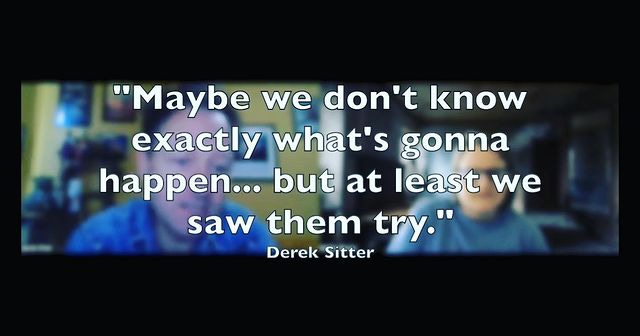
There’s an interesting quote where Sam Shepard, talking about the way that some Americans who go to Europe actually become European, states that he never could do that. Being in London actually enlivened his own cultural underpinnings. He wrote The Tooth of Crime during that period of his life—a young man abroad, adrift, and, after all, it was the rock and roll ‘Seventies.1 “I belong here,” he said, in the American West especially. Being in London “made me understand the nature of being tied to a culture that you can’t get away from; you can’t get out of it.”2 He wrote plays about people who desperately sought to get away from who they were because they couldn’t deal with themselves. Maybe that’s what he tried to do in his own life (get away from himself) but I think the important thing is, he was aware of it and he wanted to express it. Maybe he didn’t figure everything out; maybe his characters didn’t figure everything out, but, as screenwriter/director/actor Derek Sitter put it, although he was talking about his own characters, “at least we saw them try.”3
People do often use travel to get away from things—monotony, ennui—and the experience of “something new”—“anything new is good,” said Bill Murray in Groundhog Day, a story that is entirely about resisting the present moment—gives them a sense of aliveness…until it, too, becomes boring and “old news.” I’m not entirely sure what True West is about. Maybe the truth we seek is in the west, or we think it’s there; maybe the west is a metaphor for the ideal, for the ageless dream of unbounded opportunity and untapped riches. Two brothers (Austin and Lee) who haven’t seen each other in a long time suddenly find themselves in the house, in Los Angeles, where they grew up. They’ve come back to that house, for some reason. It’s not home, but they find themselves suddenly tied to it—their mother’s house—and they argue a lot about who gets to hold the keys to the one available car. It’s Austin’s car, but Lee makes it clear he can take it whenever he wants.
The mother is not in the house. She’s away, in Alaska, and I find this interesting because, like everyone else in this family, she seeks to get away to…we hardly know what or where. She flees to the north; the father long ago fled to the south. Austin lives up north with a wife and kids. Lee lives all over. He’s a drifter and BNE criminal who idealizes the Mojave desert. Just on the surface of things, anyone would guess that Austin is a fairly straightforward guy since he looks “normal” and seems to have a “normal” life (wife, kids, respectable job) but as the play rolls on, we learn that’s far from the case. He may have made a “normal” appearance for himself, but he doesn’t like anything about it. He agrees with almost no hesitation to leave all of it, including his wife and kids, in order to join his brother (in a very subservient way) on the grift. It’s a lot like both parents. The father just left them behind, even though his life in Mexico is totally impoverished to the point that all of his teeth have fallen out. (The story about the teeth has to represent something else too, not just poverty. The father is an utterly lost man, without bark, without bite.) The mother made the appearance of normalcy—similar to how Austin did—by having a house with plants to water and full of “antiques,” but when she enters the scene, toward the close of the second act, to find the plants dead, she easily dismisses them as “one less thing to take care of.”
When I really think about it, I can understand a person’s resistance to life in a house with plants, or a spouse and kids. A “house with plants” or a life with a spouse and kids are alternative ways of saying, a life with responsibility. In a positive light, we see responsibility (duty) as giving us purpose and meaning. Jordan Peterson goes so far as to make the argument that life without responsibility is a life without meaning. And yet people all over the world, all the time, find themselves in the dissatisfying present tense, constantly annoyed, irritated, and burdened by their responsibilities. All of these irritants reinforce feelings of being stuck and trapped. Interestingly, even our positive associations with marriage (commitment, stability, for example) become compromised when we fall back on cliched notions about infidelity and betrayal. In theory, we hold the merits of commitment and stability in high regard, but in practice, it’s really difficult to remain faithful to a dissatisfying agreement. Why did we agree to it in the first place? Is that how Lee feels near the end of the play when he realizes that his very uneven agreement with Austin—seemingly in Lee’s favor, at first—would actually force him into the sort of give-and-take relationship he had spent his life running away from?
My favorite part of the play is when the brothers swap places. Lee awkwardly assumes the role of the writer; Austin clumsily takes on the role of the drunken outlaw. For the first time, they see a way out of their current situations. Lee sees a chance to make money without having to steal it or train a dog for fight. Austin sees a way to freedom from the inauthentic aspects of his life, I suppose. Then, a very interesting thing happens when Mother returns. They are boys again. Groveling, obedient boys. Emasculated? Domesticated? At any rate, inauthentic! Absolutely as inauthentic and contrived as the plays the brothers have attempted to write….
I have to talk about Picasso. It’s such a random thing, but of course, in a Sam Shepard play there is nothing random. The mom leaves to go meet Picasso. Of course, we know, Picasso is dead and she’s crazy, but the fact that she’s hellbent on going to meet Picasso instead of staying in the house, at least for the moment, to deal with her troubled sons, must be one of those metaphorical devices that Shepard deployed so brilliantly—the kind of thing I talked about in “Corn and Carrots,” my analysis of Buried Child. Picasso was famous for distortions in art. The mother of Austin and Lee is looking to art for something. Is she looking for the same thing that Austin (and temporarily, Lee) sought as a screenwriter? Could art somehow help Austin to actualize an authentic life? Could it help Lee to find meaning in his drifting existence? Austin, who obviously has no love for his wife, tried to write a love story. Lee, who finds no lasting satisfaction in the desert, tried to write about men raging through the desert. Chasing after what, though? The true west? Austin accuses Lee of writing a contrived plot, but oddly enough, it might be Lee who is writing the least glaringly inauthentic story. Austin is, like his mother, chasing after a distorted sense of reality. I think between the two brothers, it is Austin who longs for escape even more than Lee. I think Lee longs for a different sort of life, but he seems more resigned to his lot than Austin does. Austin is almost having a panic attack throughout the play. “There’s nothing real down here, Lee! Least of all me!”4 He goes on to scream about looking for what’s familiar about their childhood “home,” only to get up close to it and find it’s more foreign than ever.
There is no ending to spoil. There is absolutely no ending. What does it even mean for there to be an ending? Endings themselves are manufactured things. (Even the end of a human life is not really an ending, since life always goes on and, anyway, we’re always reverting to the past by means of memory and a point of reference.) The question is, do the brothers keep fighting, or do they keep running? Or both? I could see a situation where Austin ends up chasing Lee through the desert, but who holds the keys? Who drives the car? Who writes the script?
You can borrow The Tooth of Crime by the hour here: https://archive.org/details/toothofcrimeseco00shep.
Sam Shepard: Stalking Himself. Directed by Oren Jacoby. Great Performances—season 26, episode 17. PBS, 1998. https://www.imdb.com/title/tt0279841/. I watched it on YouTube:
Interview with Derek Sitter, 28 April 2023. https://heavycrown.press/home/my-interview-with-derek-sitter/.
Austin’s line from True West by Sam Shepard. You can borrow it by the hour here: https://archive.org/details/truewest0000shep_j3t6/mode/2up.




